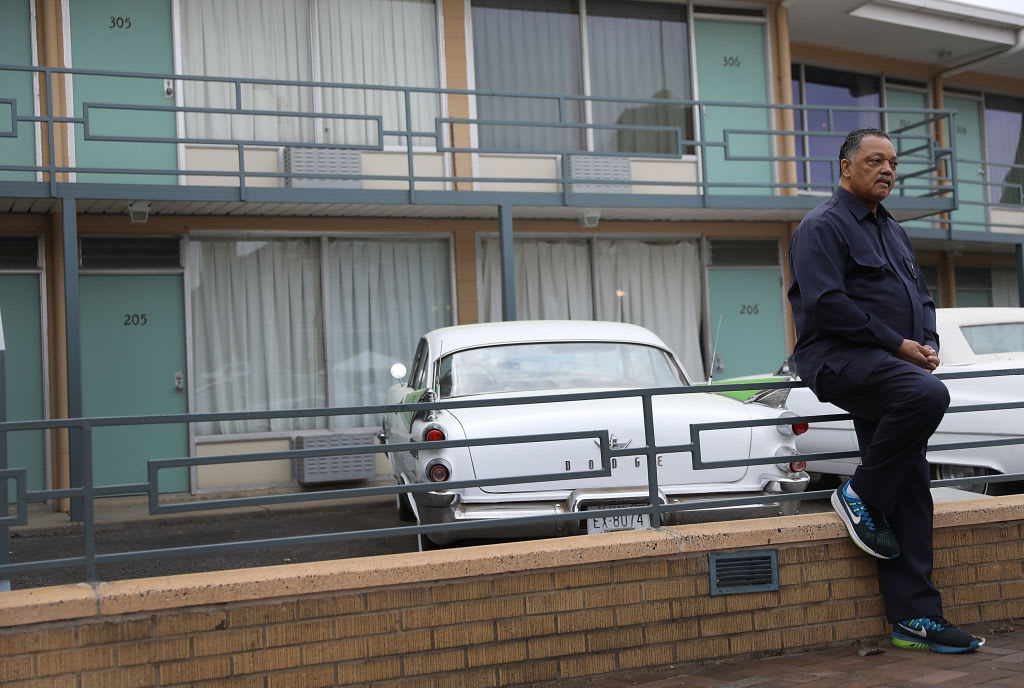
The longtime activist was a fixture in U.S. politics for decades, including two presidential runs.
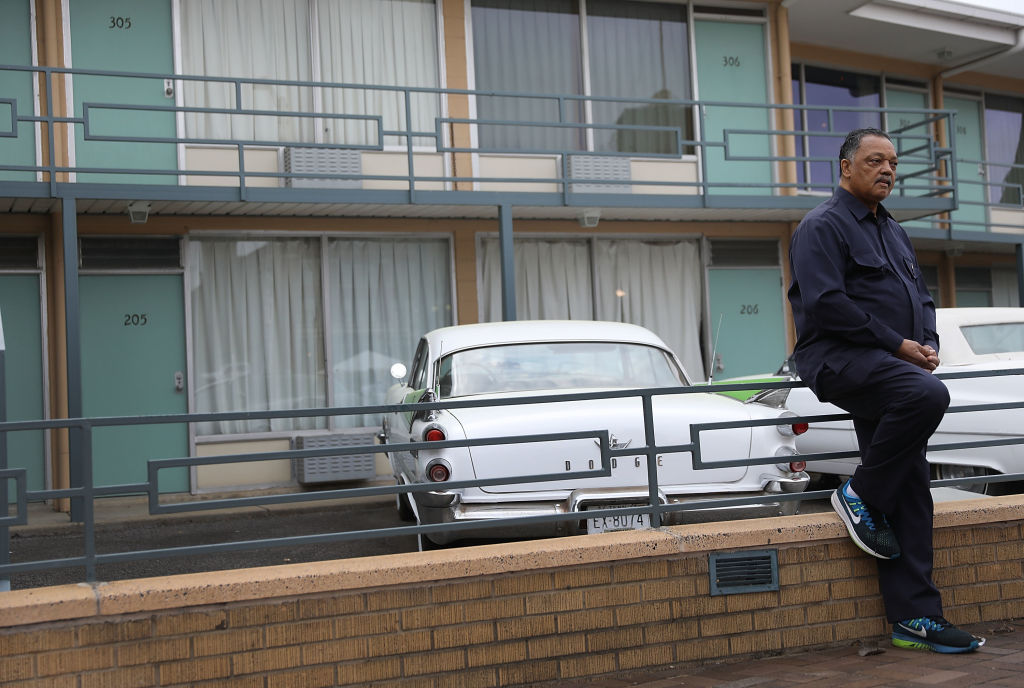

The longtime activist was a fixture in U.S. politics for decades, including two presidential runs.

![Catholic thinkers, tech experts reflect on promise and perils of AI at New York Encounter #Catholic NEW YORK — How can Catholic social teaching guide us in weighing the benefits of artificial intelligence against the dangers it poses to human dignity? That question animated a wide-ranging discussion among Catholic thinkers and technology experts at the New York Encounter on Saturday.Citing Pope Leo XIV’s call to use AI responsibly as well as the Church’s historic defense of human dignity in the face of modern technology, Davide Bolchini, moderator and dean of the Luddy School of Informatics at Indiana University, opened the discussion before an audience of several hundred people gathered for the three-day cultural conference in New York City.“The pope encouraged us to use AI responsibly, to use it in a way that helps us grow, not to let it work against us, but to let it work with us, not to substitute human intelligence, not to replace our judgment of what’s right … our ability of authentic wonder,” Bolchini said.With technology rapidly advancing, Bolchini asked, how can the Church stay ahead of these challenges?Chuck Rossi, an engineer at Meta who is developing AI-driven content moderation technology at the technology conglomerate, which includes Facebook and Instagram, argued that in his work, developments in AI have been instrumental in safeguarding human beings from harm. AI systems, he said, can examine 2.5 billion pieces of of shared online content per hour, filtering harmful material including nudity and sexual activity, bullying and harassment, child endanger, dangerous organizations, fake accounts, hateful conduct, restricted goods and services, spam, suicide and self-injury, violence and incitement, and violent and graphic content.“That’s my world,” he said. “It’s a very, very hard problem. If we miss 0.1% of 2. 5 billion, that’s millions of things that we didn’t want to be seeing. But we do an excellent job, and we have for years — we’re one of the best at it,” Rossi said.Using AI also protects human content moderators from being exposed to disturbing material, as they were in the past.“The good thing that we are giving back to humans is you never have to do this horrible work,” he said.Paul Scherz, professor of theology at the University of Notre Dame, acknowledged the benefits of AI, which he said included advances in medicine and efficiency for tasks like billing (“Nobody wants to do billing,” he said).But Scherz warned of the dangers of relying on technology to do what is intrinsically human.“We are really starting to turn to AI as people more broadly for these relational aspects, which would be tragic because there is something in that human-to-human connection, the ‘I/thou connection,’ as Martin Buber called it, that is irreplaceable by a machine,” Scherz said. He noted that AI has even moved into ministry, with the rise of Catholic apps relying on bots to offer catechesis.Scherz also cautioned that substituting AI for human interaction and intelligence risks eroding our skills, whether in relationships or in professional life.“My fear is as we use these chatbots more and more we will lose those person-to-person skills. We’ll no longer be able to engage one another as well, or have the patience and virtue to deeply love and encounter one another,” Scherz said.In addition, relying on AI in our work, for example, when a doctor consults AI to make a diagnosis, will result in our “de-skilling,” he said. “We know that people, when they’re using automated systems, they tend to just become biased and complacent and just approve the automated system. They lose their skills,” he said, adding that airline pilots who rely too much on autopilot are more prone to making errors.Louis Kim, former vice president of personal systems and AI at Hewlett-Packard who is currently pursuing graduate studies in theology and health care, pointed out that it’s not possible to know today what skills will be required in the future.“My personal view is I often find that predictions of impacted technology are largely unconsciously based on what we know of the current paradigm and structure and technologies,” Kim said.“There are going to be skills needed to control AI that are going to be different,” he said.Kim also called for “humility” in discussions about AI’s potential to affect human relationships.“Let’s ask ourselves about the quality of our current human relationships, whether it’s in the workplace, in toxic cultures, sometimes at home — even at conferences, at your next break, as you go around talking to this person [or] that person, how many times that person is looking over your shoulder for the more important person to talk to?” he said.Our moral formation, he said, will continue to shape the quality of our encounters with others. Catholic thinkers, tech experts reflect on promise and perils of AI at New York Encounter #Catholic NEW YORK — How can Catholic social teaching guide us in weighing the benefits of artificial intelligence against the dangers it poses to human dignity? That question animated a wide-ranging discussion among Catholic thinkers and technology experts at the New York Encounter on Saturday.Citing Pope Leo XIV’s call to use AI responsibly as well as the Church’s historic defense of human dignity in the face of modern technology, Davide Bolchini, moderator and dean of the Luddy School of Informatics at Indiana University, opened the discussion before an audience of several hundred people gathered for the three-day cultural conference in New York City.“The pope encouraged us to use AI responsibly, to use it in a way that helps us grow, not to let it work against us, but to let it work with us, not to substitute human intelligence, not to replace our judgment of what’s right … our ability of authentic wonder,” Bolchini said.With technology rapidly advancing, Bolchini asked, how can the Church stay ahead of these challenges?Chuck Rossi, an engineer at Meta who is developing AI-driven content moderation technology at the technology conglomerate, which includes Facebook and Instagram, argued that in his work, developments in AI have been instrumental in safeguarding human beings from harm. AI systems, he said, can examine 2.5 billion pieces of of shared online content per hour, filtering harmful material including nudity and sexual activity, bullying and harassment, child endanger, dangerous organizations, fake accounts, hateful conduct, restricted goods and services, spam, suicide and self-injury, violence and incitement, and violent and graphic content.“That’s my world,” he said. “It’s a very, very hard problem. If we miss 0.1% of 2. 5 billion, that’s millions of things that we didn’t want to be seeing. But we do an excellent job, and we have for years — we’re one of the best at it,” Rossi said.Using AI also protects human content moderators from being exposed to disturbing material, as they were in the past.“The good thing that we are giving back to humans is you never have to do this horrible work,” he said.Paul Scherz, professor of theology at the University of Notre Dame, acknowledged the benefits of AI, which he said included advances in medicine and efficiency for tasks like billing (“Nobody wants to do billing,” he said).But Scherz warned of the dangers of relying on technology to do what is intrinsically human.“We are really starting to turn to AI as people more broadly for these relational aspects, which would be tragic because there is something in that human-to-human connection, the ‘I/thou connection,’ as Martin Buber called it, that is irreplaceable by a machine,” Scherz said. He noted that AI has even moved into ministry, with the rise of Catholic apps relying on bots to offer catechesis.Scherz also cautioned that substituting AI for human interaction and intelligence risks eroding our skills, whether in relationships or in professional life.“My fear is as we use these chatbots more and more we will lose those person-to-person skills. We’ll no longer be able to engage one another as well, or have the patience and virtue to deeply love and encounter one another,” Scherz said.In addition, relying on AI in our work, for example, when a doctor consults AI to make a diagnosis, will result in our “de-skilling,” he said. “We know that people, when they’re using automated systems, they tend to just become biased and complacent and just approve the automated system. They lose their skills,” he said, adding that airline pilots who rely too much on autopilot are more prone to making errors.Louis Kim, former vice president of personal systems and AI at Hewlett-Packard who is currently pursuing graduate studies in theology and health care, pointed out that it’s not possible to know today what skills will be required in the future.“My personal view is I often find that predictions of impacted technology are largely unconsciously based on what we know of the current paradigm and structure and technologies,” Kim said.“There are going to be skills needed to control AI that are going to be different,” he said.Kim also called for “humility” in discussions about AI’s potential to affect human relationships.“Let’s ask ourselves about the quality of our current human relationships, whether it’s in the workplace, in toxic cultures, sometimes at home — even at conferences, at your next break, as you go around talking to this person [or] that person, how many times that person is looking over your shoulder for the more important person to talk to?” he said.Our moral formation, he said, will continue to shape the quality of our encounters with others.](https://unitedyam.com/wp-content/uploads/2026/02/catholic-thinkers-tech-experts-reflect-on-promise-and-perils-of-ai-at-new-york-encounter-catholic-new-york-how-can-catholic-social-teaching-guide-us-in-weighing-the-benefits-of-artificial-scaled.jpg)
“The pope encouraged us to use AI responsibly, to use it in a way that helps us grow, not to let it work against us, ” said Davide Bolchini, the moderator of an AI panel at the weekend conference.
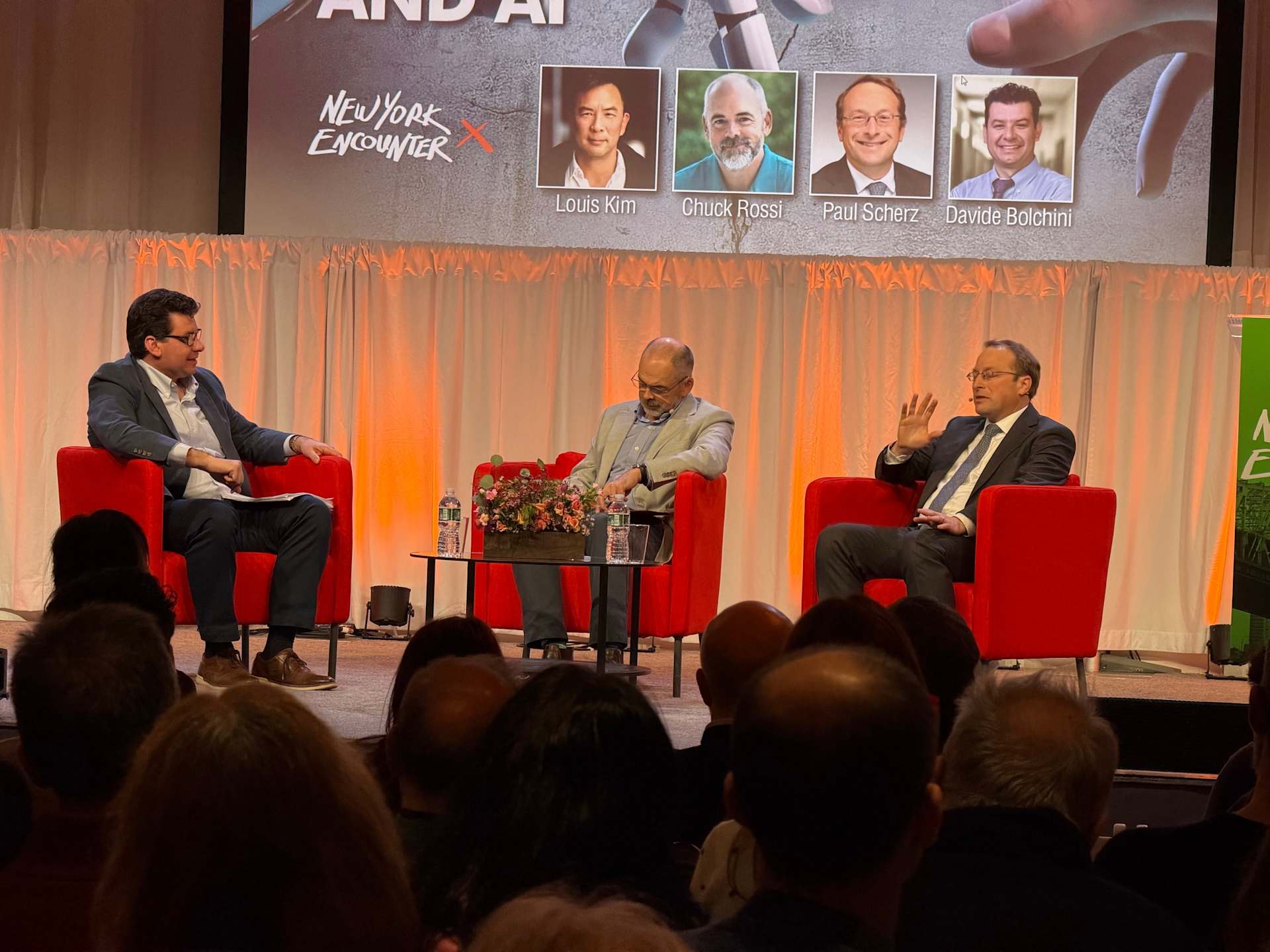
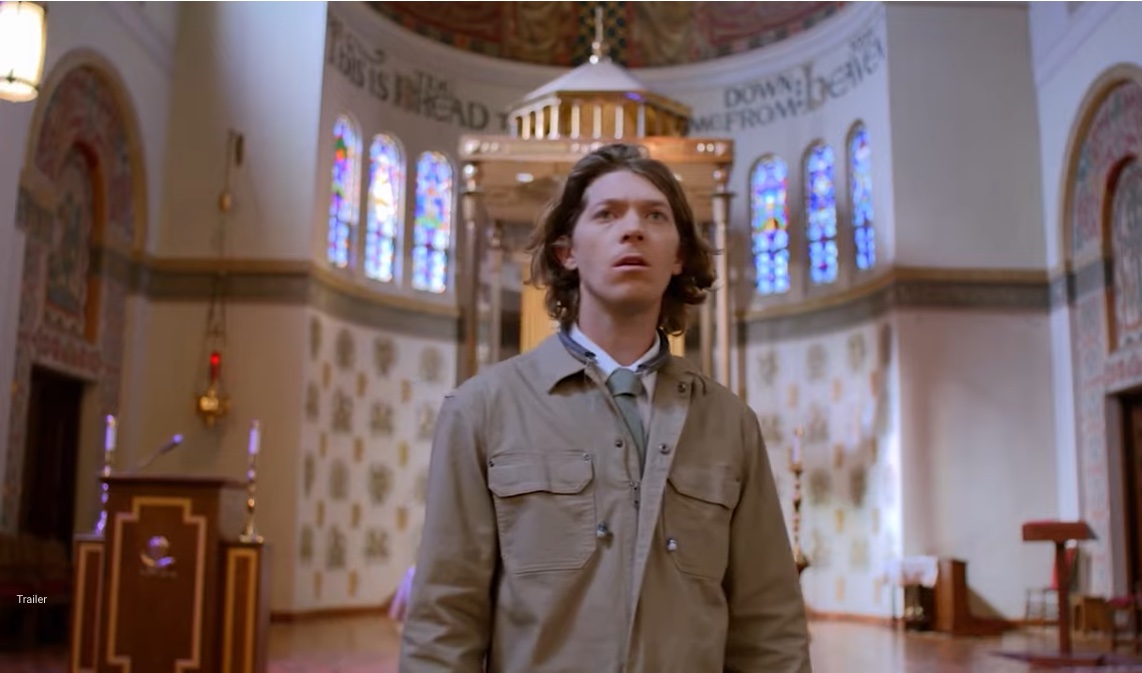
The first season introduced viewers to James Little, a student fresh out of college desperate for a job.
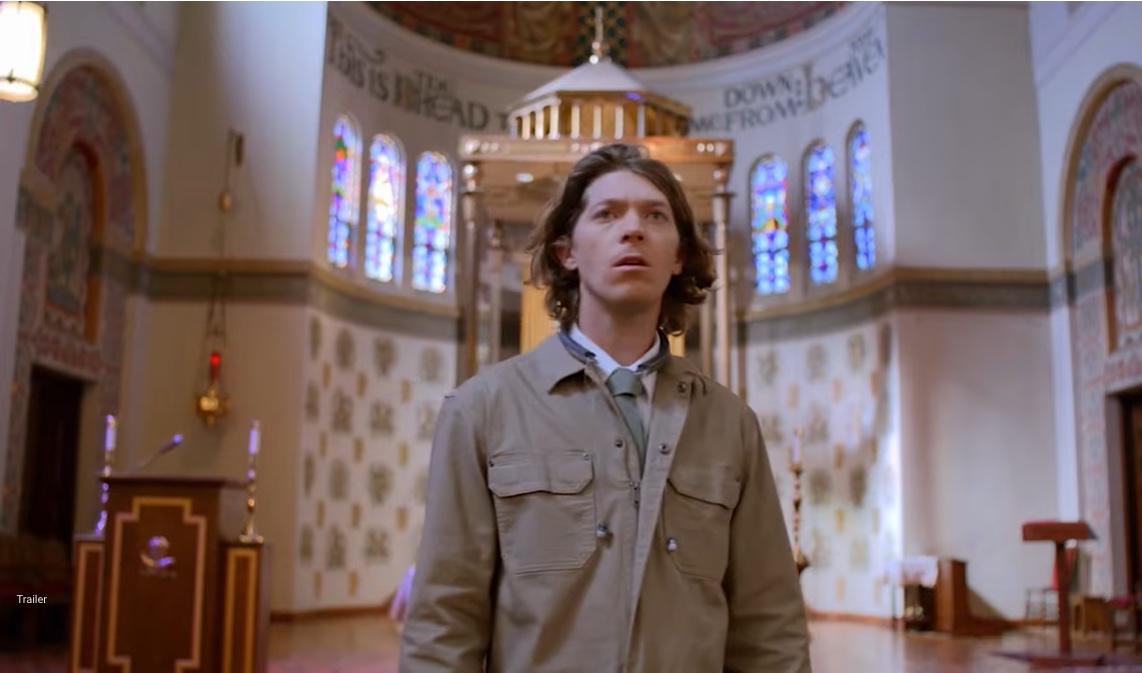
![‘My Catholic faith guides me’: HHS assistant secretary speaks on policy, saints #Catholic Adm. Brian Christine, assistant secretary for health at the Department of Health and Human Services (HHS) and a practicing Catholic, talked about the state of the pro-life movement as well as his own faith in an interview on “EWTN Pro-Life Weekly” on Wednesday.Christine, a practicing Catholic, said the HHS values religious freedom.“We are not going to allow health care practitioners to be disparaged or be discriminated against because of their faith,” he told host Abigail Galvan. “We faithful don’t have to check our faith at the door to practice medicine or science.”For his part, Christine said his faith and the example of the saints guides him.“My Catholic faith guides me,” he said. “Every decision that I make — I don’t set my faith aside at the door.”When asked if he had a particular devotion, Christine said he takes inspiration from many saints.“I don’t have a patron saint — I have a whole cloud of witnesses,” he said. “I have a whole cloud of saints because I need them. I’m really devoted to St. Peter the Apostle — I’ve made so many mistakes in my life. I’ve fallen so many times. But you get back up and St. Peter could deny the Lord, and yet there he is, the rock of the Church, the first pontiff, the first Holy Father.”“St. Thomas More, who really stood strong to serve in government and yet ultimately did what was right, and he paid the ultimate price,” Christine said.Christine said he also looks to a more recent blessed, Blessed Clemens August Graf von Galen, the archbishop of Münster in Germany in the 1930s and 1940s, and how he spoke out against euthanasia in his time.“He was known as the Lion of Münster because [of] his homilies against the Nazi T4 program, which was the euthanasia of those the Nazis considered undesirable for life or unworthy of life,” Christine said. “He preached such strong homilies against the T4 program that the Nazis ultimately stopped that program.”Abortion pillChemical abortions make up nearly two-thirds of U.S. abortions and are being mailed across state lines, even to states where unborn children are protected throughout pregnancy. Due to easy access to the abortion drug, mifepristone, abortion rates are climbing, making it a key issue in the pro-life movement.But action against chemical abortions has stalled in the Trump administration, which promised an investigation into the safety concerns for women surrounding the abortion pills.
Adm. Brian Christine, a practicing Catholic who serves as the assistant secretary for health at the U.S. Department of Health and Human Services, speaks with Abigail Galvan on “EWTN Pro-Life Weekly” on Feb. 4, 2026. | Credit: “EWTN Pro-Life Weekly” screenshot
When asked about this, Christine said that “data is being collected” and a review is “ongoing,” saying “the commissioner of the FDA [Food and Drug Administration], Dr. Marty Makary, has certainly committed to doing a review of the safety of mifepristone.”“That review is ongoing because we want to make sure we have the best data about the potential harm of mifepristone so that women can make truly informed-consent decisions,” Christine continued. “If women are considering using that drug, they need to understand what the implications may be.”Compassionate mental health careFor the HHS, “compassionate mental health care” for minors suffering from gender dysphoria “is incredibly important to the country,” Christine said.“It’s incredibly important to those most vulnerable, these minors who suffer from gender dysphoria, because gender dysphoria is a real condition, a mental health condition,” Christine said.Referring to an HHS study, Christine said that “using castrating chemicals — that is not the way to treat these vulnerable children.”“If you use the mental health support, the vast majority of these children are going to be very happy in their own skin,” he continued. “We don’t need to be cutting off body parts.”“We don’t need to be giving them chemicals that are going to cause irreversible harm for the rest of their life,” Christine said. “We have been very strong about this in the Trump administration. We have been led by [HHS] Secretary [Robert] Kennedy, and we’re never going to back away from these things.”](https://unitedyam.com/wp-content/uploads/2026/02/my-catholic-faith-guides-me-hhs-assistant-secretary-speaks-on-policy-saints-catholic-adm-brian-christine-assistant-secretary-for-health-at-the-department-of-health-and-human-ser-scaled.png)
Adm. Brian Christine, a practicing Catholic, talked about the state of the pro-life movement and how his faith guides him.
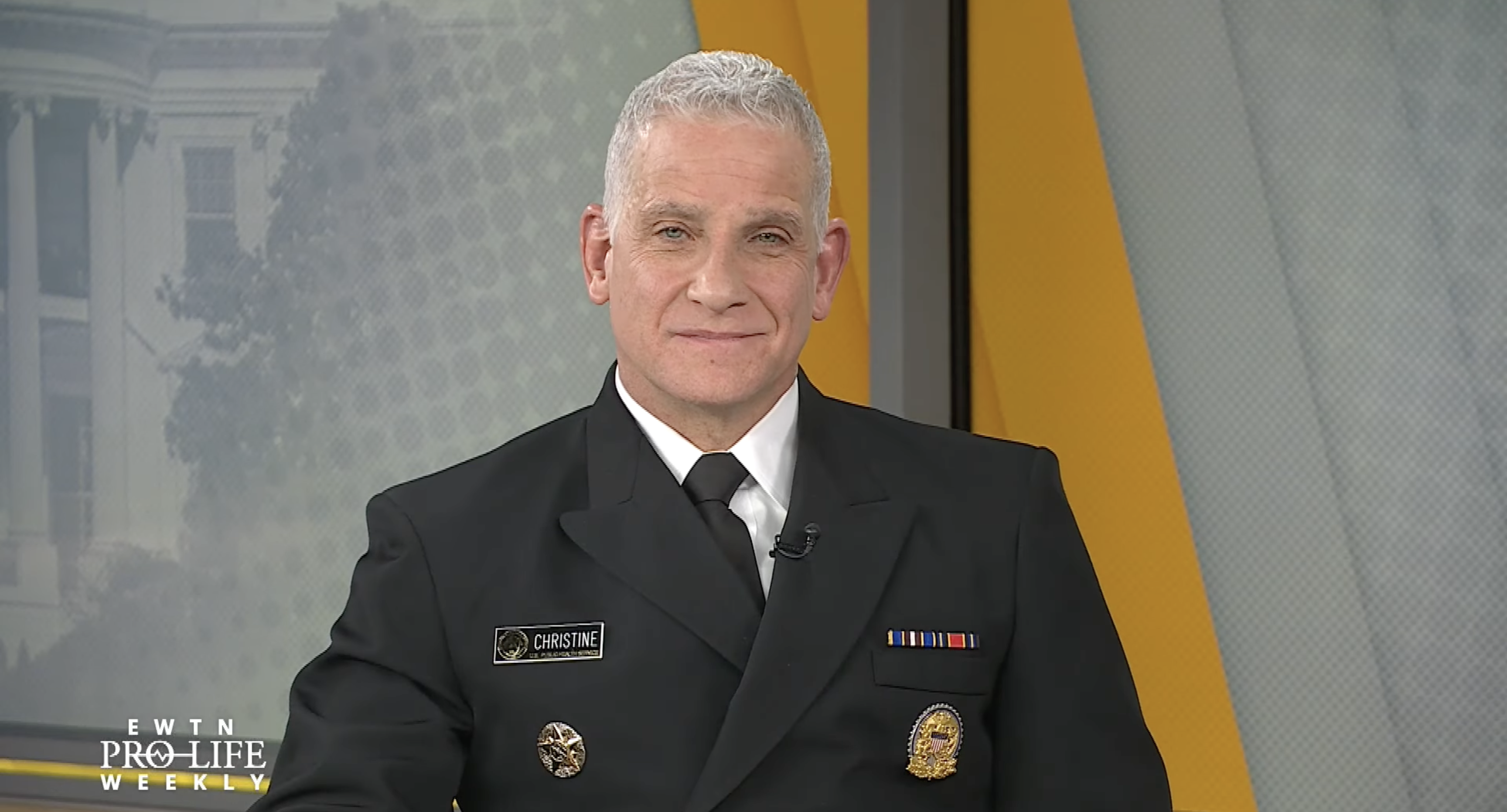
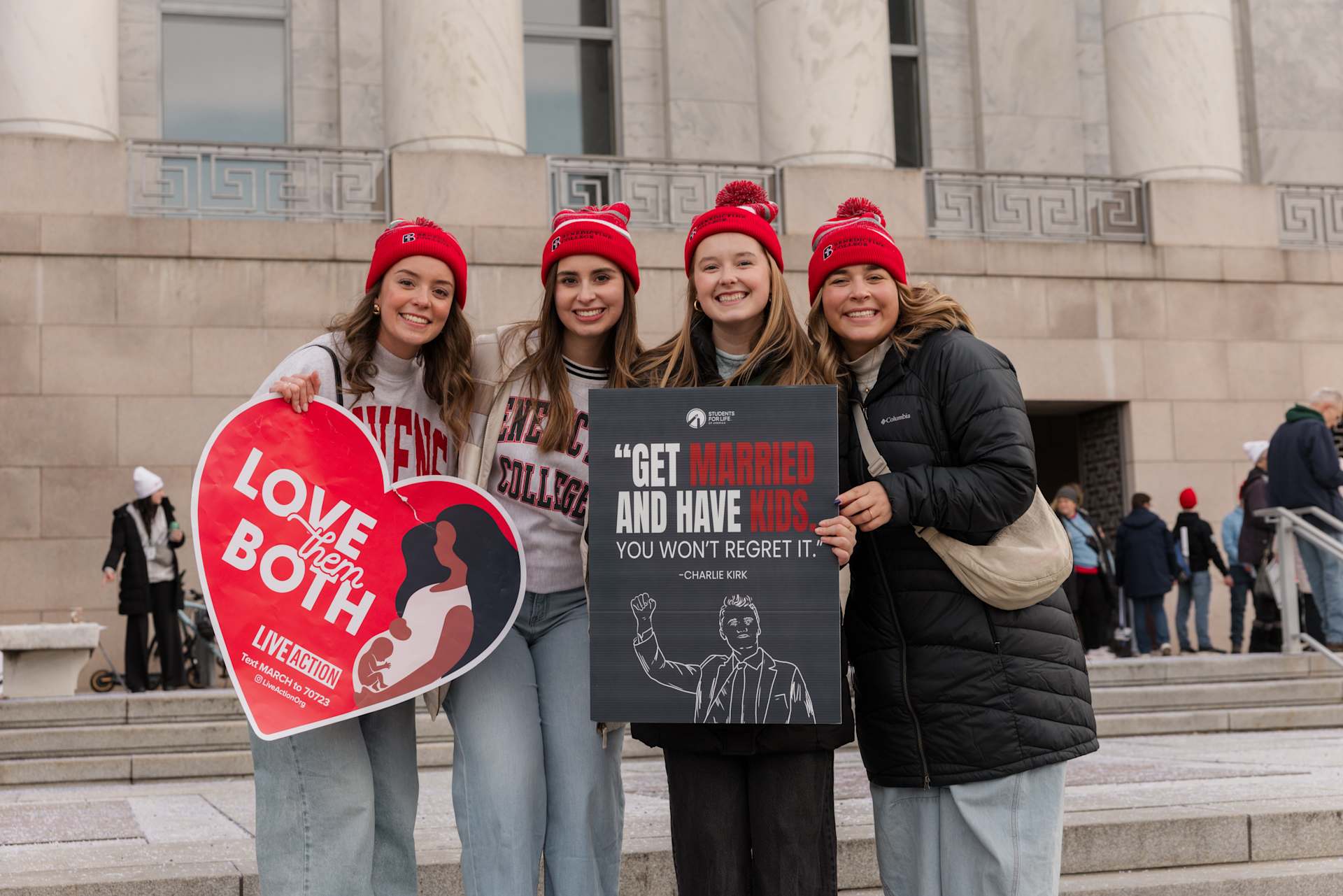
Some Catholic colleges ranked among the best for pro-life support for women, while others were among the worst for their ties to abortion clinics, according to a new report.
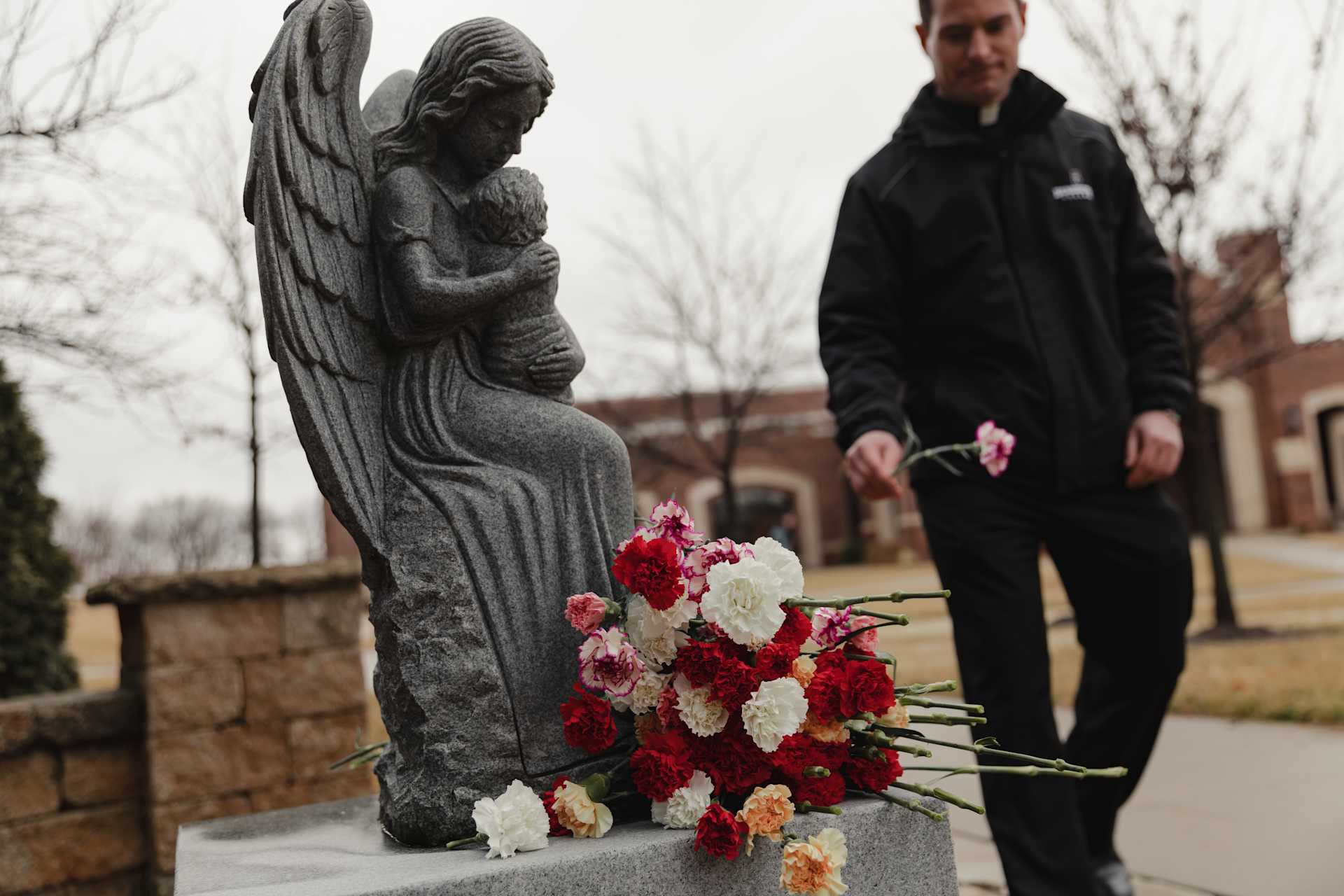
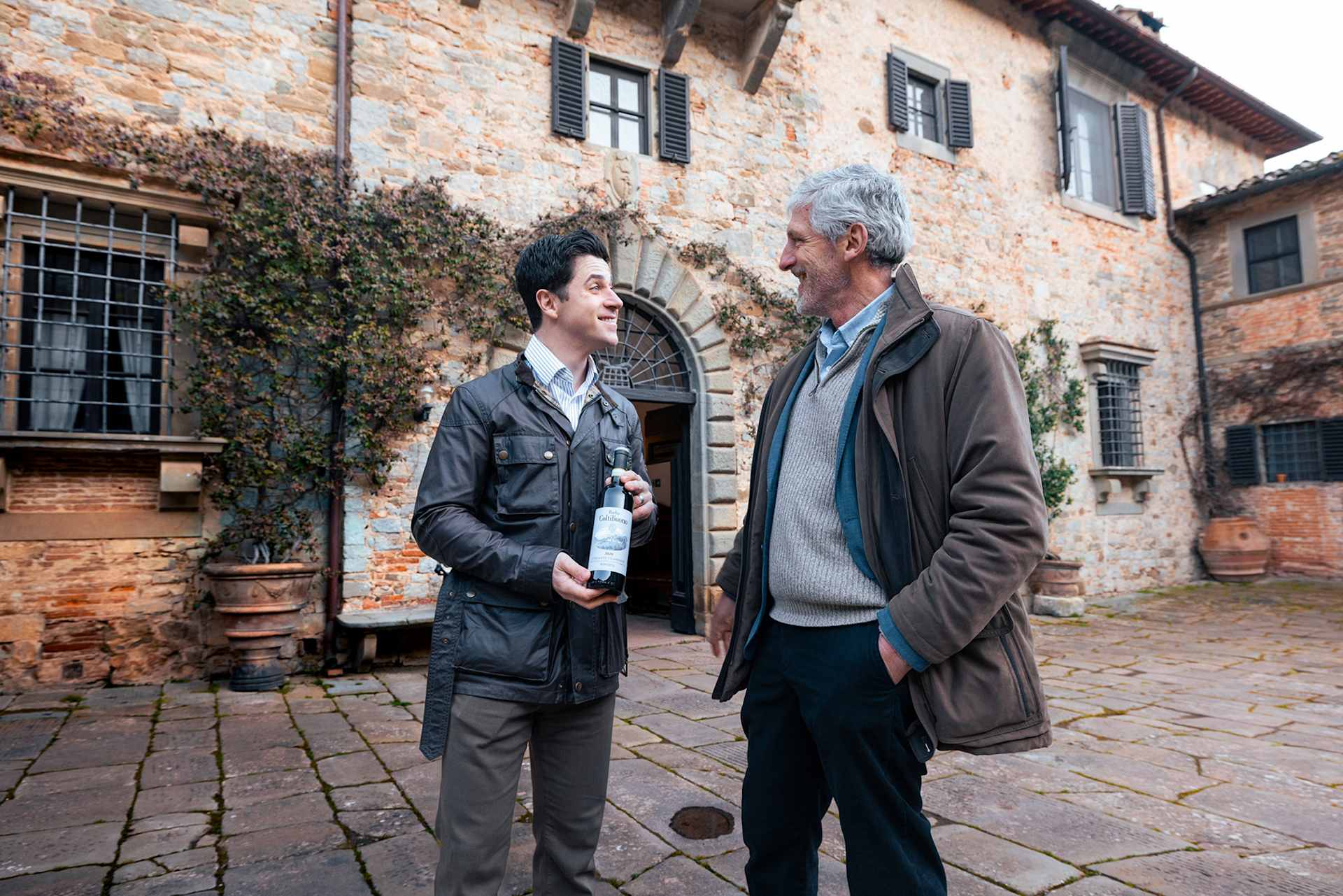

Jan 22, 2026 / 12:00 pm (CNA).
Catholic figures gathered in Los Angeles on Jan. 16 for the premiere of “Seeking Beauty,” the first original series from EWTN Studios airing exclusively on the network’s brand-new streaming platform, EWTN+.
Here are five things to know about the new series and its host, actor David Henrie.
“Seeking Beauty” is a first-of-its-kind adventure documentary series that explores culture, architecture, food, art, and music, and aims to point viewers to the beautiful — and ultimately to the divine.
The series follows Henrie’s journey into the heart of Italy to explore what makes Italian culture one of the most beautiful in the world. It not only looks at the physical beauty of the country but also its spiritual richness.
“Seeking Beauty” is available to watch exclusively on EWTN+, a free digital streaming platform that offers faith-based content. EWTN+ is available on RokuTV, GoogleTV, AppleTV, AmazonFireTV, and on EWTN.com.
The first season of “Seeking Beauty” takes place in several cities across Italy including Vatican City, Rome, Milan, Florence, and Venice.
Henrie is best known for his breakout role as Justin Russo on Disney Channel’s “Wizards of Waverly Place.” He grew up in a Catholic household with Italian heritage; however, Henrie’s early adult years were marked by what he has described as a relativistic and agnostic period. He has also spoken about how the successes of early fame left him feeling unfulfilled and searching for deeper meaning.
Henrie’s return to the Catholic faith was a profound personal transformation that he says began around age 21 or 22.
A significant influence came while working on the movie “Little Boy,” where conversations with Catholic cast members Kevin James and Eduardo Verástegui, as well as a visit to St. Michael Abbey in Orange County, California — including his first confession since childhood — played a pivotal role in rediscovering his faith.
Since then, Henrie has embraced his faith publicly and personally, integrating his beliefs into his family life, creative projects, and charity work, including serving as a brand ambassador for Cross Catholic Outreach and participating in mission trips that reflect his commitment to living out his faith. He is married and has three children.
Yes! The second season of the series was filmed in Spain and is scheduled to premiere this fall.
Read More

Jan 18, 2026 / 06:00 am (CNA).
Amy Ford was 19 years old when she found herself with an unplanned pregnancy. Scared and thinking her life and dreams were over, she attempted to get an abortion but was unable to go through with it.
Ford and the baby’s father turned to their church for support and received none. The experience led her to create Embrace Grace, a nonprofit that provides support and community through local churches for pregnant mothers in need.
Ford told EWTN News that she thought “my life was over, my dreams were over, that my parents were going to hate me.” She said she thought she would end up homeless.
“The father of the baby felt the same way and we just thought we could have an abortion and maybe that’s a quick fix and we’ll just deal with the consequences of a broken heart later. And even though we grew up knowing abortion was wrong, we just kind of went into this mode of trying not to feel anything,” Ford recalled.
So, she went to an abortion clinic. As the nurses explained what they were going to do during the procedure, Ford began to hyperventilate and passed out. She was told she was “too emotionally distraught” to make a decision and that she could go back to the abortion clinic another day.
As she walked into the waiting room, she told the baby’s father that she was still pregnant. At that moment, the two decided they would keep the child. The high school sweethearts knew they wanted to get married one day; they just didn’t expect to have a child before marriage.
The two went to an evangelical pastor whom they knew personally to ask him if he could marry them.
“He said, ‘No, I’m sorry, because you sinned I will not bless this marriage,’” Ford shared.
The couple found another pastor to marry them and got married when Ford was 16 weeks pregnant. They tried going back to their church after that but it was “the elephant in the room” — others changed how they interacted with them and they decided to stop attending church for a period of time.
Ford and her husband welcomed their son — who is now 27 years old and also works in the pro-life movement — and have been married for 27 years, welcoming three more children after their firstborn.
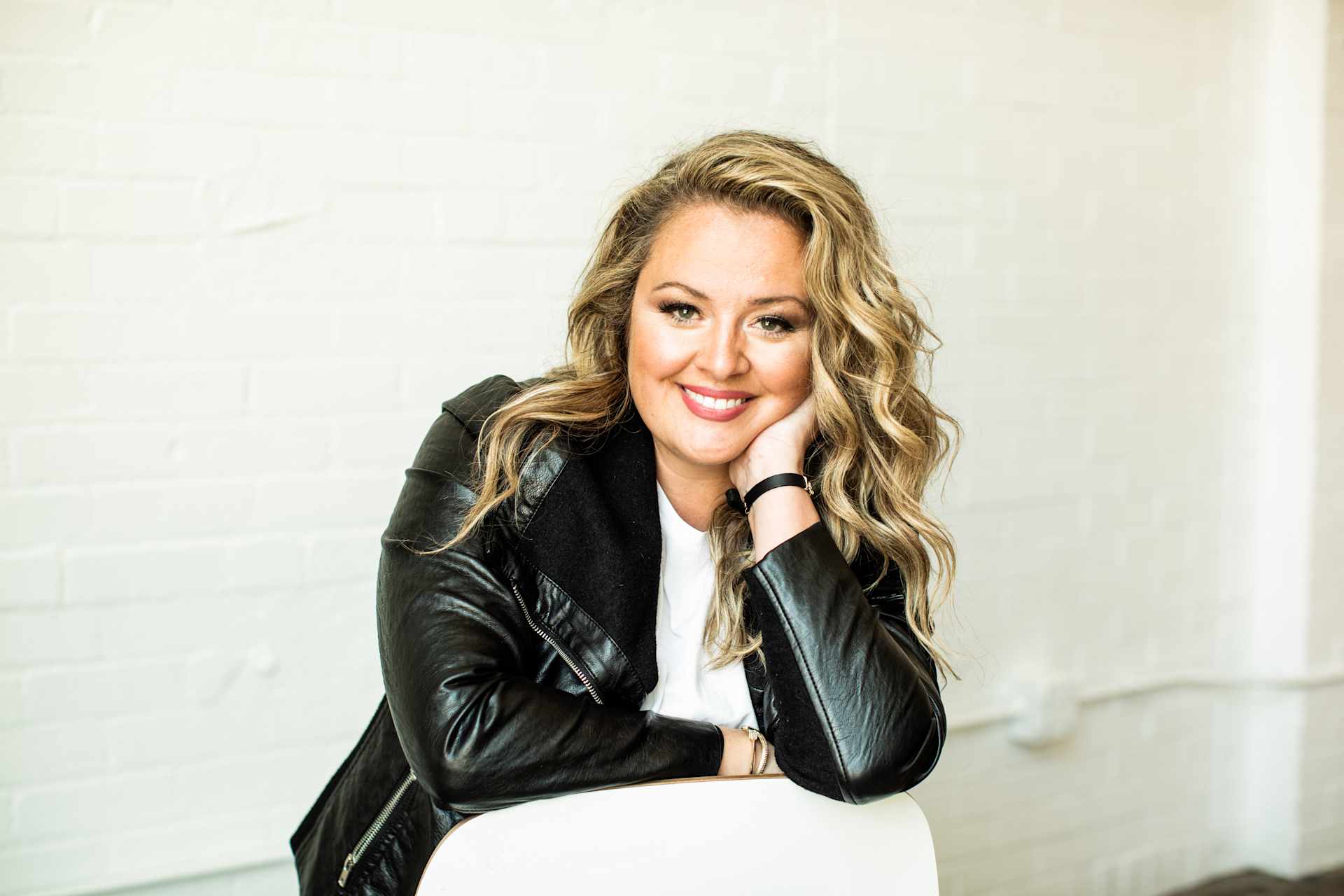
Looking back at her experience, Ford felt called to help women who found themselves in these situations, not sure where to go, and weren’t aware of the resources available to them. So she started a small group at her church for women who were experiencing an unexpected pregnancy.
Ford admitted that back then she didn’t know what a pregnancy center was or what the pro-life movement was.
“If someone would have said, ‘I work in the pro-life movement,’ I would have assumed that meant picketing because that’s the only thing the media shows,” she admitted. “I didn’t know what a pregnancy center was even when I started Embrace Grace, the group. I didn’t know anything about it. So, I never thought, ‘I’m starting a pro-life group.’ That wasn’t even on my mind. I just wanted to start a small group for women that have unexpected pregnancies.”
In 2008 Ford hosted her first group, which was made up of three women who met at a local church in the Dallas-Forth Worth area. After meeting for 12 weeks as a group, “they didn’t even seem like the same person by the end of it,” Ford recalled.
“They had completely transformed. They were empowered as women to be the moms that God created them to be.”
After the first group, Ford held another Embrace Grace session, and another and another. With each passing session, more and more young women were attending and slowly more and more churches were getting involved.
Today, Embrace Grace is in over 1,200 churches across the country — mostly in evangelical, Baptist, and Catholic churches.
A woman who joins an Embrace Grace group goes through a 12-week curriculum that aims to help her experience healing and remind her of who God made her to be as a daughter of God and a mother. Additionally, the church hosting the group throws each woman a baby shower.

Embrace Grace also has two other programs: Embrace Life and Embrace Legacy.
Embrace Life is a 20-week program that teaches the women more practical skills in terms of parenting, the newborn phase and postpartum, how to manage finances, and more. Embrace Legacy is a 12-week program aimed at new or single fathers.
Ford hopes that Embrace Grace serves as a tool of “courage and the bridge to get them actually going to church and raising their kids in the church and being a part of a spiritual family.”
The nondenominational nonprofit also works in partnership with local pregnancy centers that are within a 30-mile radius of a church that hosts an Embrace Grace group by giving them what they call “Love Boxes” to give women who find out they are pregnant and are seeking support. The Love Box contains a onesie with the words “Best Gift Ever,” a book called “A Bump in Life” — which contains 20 testimonies from women who chose life — a journal, a handwritten letter encouraging a new mother, and an invitation to join the local Embrace Grace group.

“Because most pregnancy centers have sonogram machines, that means they’re medical, which means they have HIPAA laws that they have to abide by. So, they can’t just give the church the girl’s name,” Ford explained. “So these Love Boxes are kind of a way, another touch, for the mom to find out more … and that there’s a church that wants to walk alongside you.”
Embrace Grace recently reached a milestone by giving out 150,000 Love Boxes since its launch in 2018.
Looking ahead, Ford’s goal is to be in 23,400 churches. If that number sounds specific, that’s because it is. By using different tools, Ford and her team concluded that if they want every woman who finds herself in an unplanned pregnancy to be able to turn to a church for support, Embrace Grace needs to be in “23,400 churches strategically placed around the United States … so that no mom would ever have to walk alone.”
“We are just putting it out there, trying to partner with as many churches as possible, so that we can make that happen,” she said. “That is our big dream. That that’s what the world would look like — that no mom would have to walk alone and that she would have a church to turn to in her local area.”
“I believe in leading Embrace Grace, we have front-row seats to miracles.”
Read More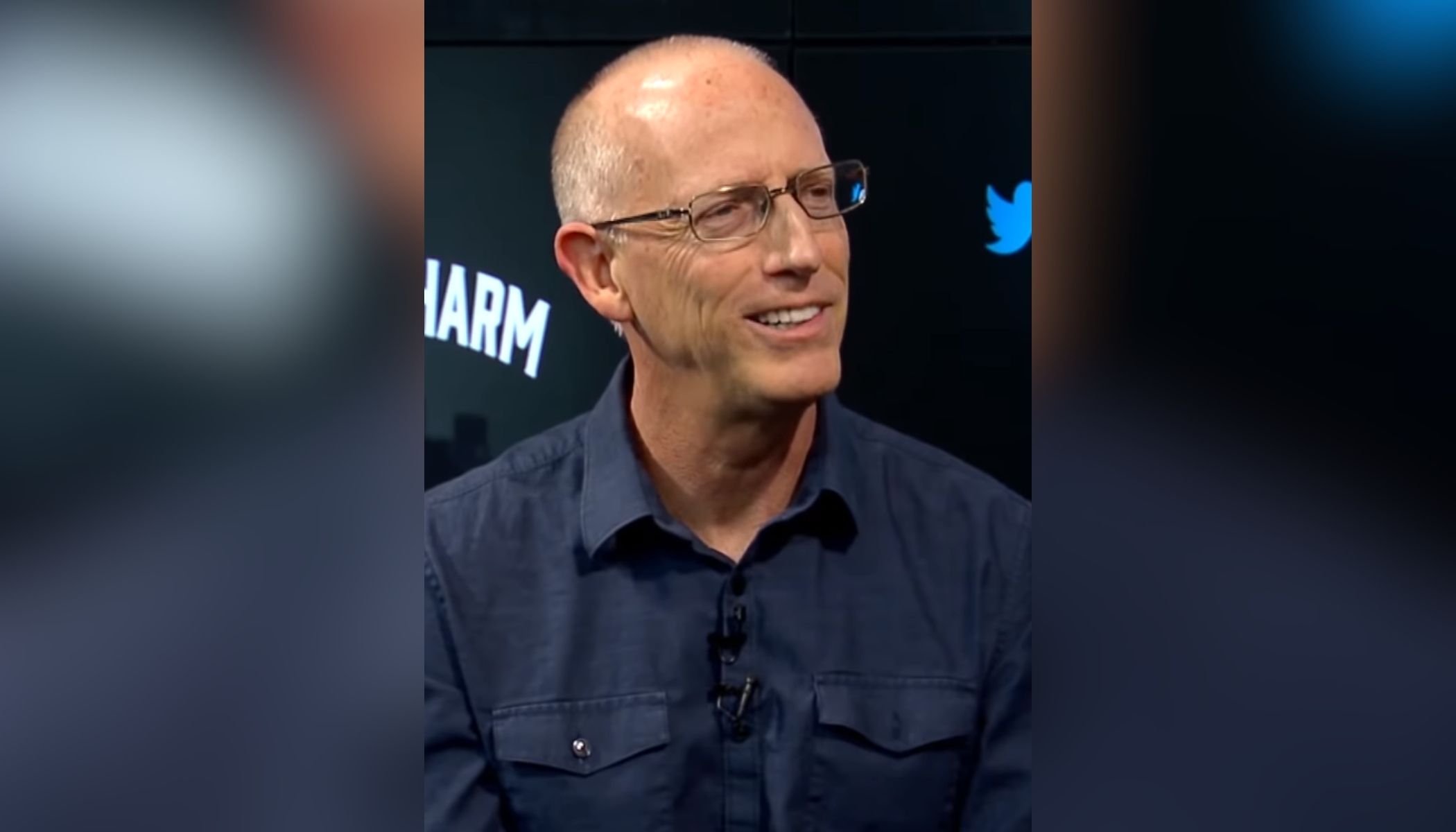

Jan 13, 2026 / 15:36 pm (CNA).
Scott Adams, the creator of the long-running “Dilbert” comic strip whose art satirized the typical American workplace, died on Jan. 13 at 68 years old after a battle with cancer.
Adams, who became known later in his career for espousing conservative and at times controversial political views, revealed in May 2025 that he was suffering from prostate cancer. The disease spread in the coming months, with Adams passing away after a short stay in hospice.
On Jan. 13, shortly after his death, Adams’ X account posted a “final message” from the renowned cartoonist in which he recalled that many of his Christian friends had urged him to convert to Christianity.
A Final Message From Scott Adams pic.twitter.com/QKX6b0MFZA
— Scott Adams (@ScottAdamsSays) January 13, 2026
“I accept Jesus Christ as my lord and savior, and I look forward to spending an eternity with him,” Adams declared in the message, adding that he hoped he was “still qualified for entry” into heaven upon his death.
“I had an amazing life. I gave it everything I had,” he wrote in the statement. “If you got any benefits from my work, I’m asking you to pay it forward as best you can. That is the legacy I want.”
Adams had previously announced his intent to convert on Jan. 1, admitting that “any skepticism I have about reality would certainly be instantly answered if I wake up in heaven.”
Born June 8, 1957, in Windham, New York, Adams began drawing from a young age. His work at the Pacific Bell Telephone Company in the 1980s and 1990s inspired many of the humorous office stereotypes portrayed in “Dilbert.”
A send-up of many of the tropes that continue to define U.S. office work, “Dilbert” became wildly popular into the 2000s and eventually included a brief television series.
Later in his career he launched the video talk series “Real Coffee With Scott Adams,” which he continued until just several days before his death.
In his final message released after his death, Adams told his fans: “Be useful.”
“And please know,” he added, “I loved you all to the end.”
Read More

Jan 12, 2026 / 06:00 am (CNA).
Catholic medical professionals and ethicists had mixed reactions to the Centers for Disease Control and Prevention’s (CDC) announcement last week that it has revised the recommended childhood and adolescent vaccine schedule.
In a press release on Jan. 5, the CDC announced a revised recommended childhood immunization schedule, which reduces the number of universally recommended vaccines from 18 to 11. It retains routine recommendations for all children against measles, mumps, rubella, polio, pertussis, tetanus, diphtheria, Haemophilus influenzae type b, pneumococcal disease, human papillomavirus (HPV), and varicella (chickenpox).
Vaccines for rotavirus, influenza, COVID-19, hepatitis A, hepatitis B, meningococcal disease, and RSV now shift to recommendations for high-risk groups or after “shared clinical decision-making” between providers and families.
According to a Department of Health and Human Services (HHS) memo, the CDC “applies shared clinical decision-making recommendations when evidence indicates that individuals may benefit from vaccination based on an analysis of the individual’s characteristics, values, and preferences, the provider’s medical judgment, and the characteristics of the vaccine being considered.”
Insurance companies must continue to cover all vaccines.
The changes come after President Donald Trump directed the heads of the CDC and HHS in December 2025 to “review best practices from peer, developed nations regarding childhood vaccination recommendations and the scientific evidence underlying those practices” and to make changes accordingly.
After reviewing the vaccination practices of 20 peer nations, a scientific assessment found that “the U.S. is a global outlier among developed nations in both the number of diseases addressed in its routine childhood vaccination schedule and the total number of recommended doses but does not have higher vaccination rates than such countries.”
“Science demands continuous evaluation,” Dr. Jay Bhattacharya, director of the National Institutes of Health (NIH), said in the CDC press release. “This decision commits NIH, CDC, and the Food and Drug Administration (FDA) to gold standard science, greater transparency, and ongoing reassessment as new data emerge.”
Dr. Tim Millea, chair of the health care policy committee at the Catholic Medical Association (CMA), welcomed the changes, telling CNA that he thought the CDC approached the revisions “in a very logical way.”
“There has been a huge drop in trust surrounding vaccines since the COVID-19 pandemic,” Millea said. “The suggestions during COVID that the science was ‘settled’ rubbed a lot of us the wrong way.”
“The loudest critics of these new recommendations say this is ideology over science,” he said. “Science is a process, not an end. If we need more evidence, let’s get it,” he said, pointing out Bhattacharya’s call for “gold standard” science and “ongoing reassessment.”
Millea, a retired orthopedic surgeon, said he has confidence that Bhattacharya and Dr. Marty Makary, head of the FDA, are “not going to let ideology get ahead of science.”
The president of the National Catholic Bioethics Center (NCBC), John Di Camillo, told CNA in a statement regarding the updated immunization recommendations: “The people look to public health authorities precisely for this kind of guidance, which is responsive to continually evolving research, ongoing discussions among professionals in the medical field, and ethical principles that promote the common good, respect the dignity of the human person, and limit the interference of financial and ideological conflicts.”
Millea acknowledged that critics of the CDC’s revised recommendations say comparing the U.S. vaccine schedule to that of much smaller, more homogeneous nations such as Denmark is like “comparing apples to oranges.”
However, he pointed out that the CDC’s revised schedule is simply a recommendation, and each of the 50 U.S. states is free to do what it deems best. “It’s like 50 laboratories. Let’s see what works the best.”
Invoking the Catholic principle of subsidiarity, Millea said “let those closest to the children who are getting the vaccinations make the decisions.”
“One of the positive aspects of the pandemic is that now we can take a step back and we’re questioning, not because something may be wrong, but maybe because it could be improved upon,” Millea said.
John F. Brehany, executive vice president and director of Institutional Relations at the NCBC, told CNA that “the new schedule appears to have been designed with good intent; that is, … to have gained public trust in the absence of mandates and to have contributed to population health outcomes that meet or exceed those of the U.S.”
“The new schedule does not take a ‘one size fits all’ approach but rather structures recommendations based on the nature of the diseases, vaccines in question, and characteristics of the children or patients who may receive them,” he continued. “This approach appears to be well-founded and to provide a sound foundation for respecting the dignity and rights of every unique human person.”
Dr. Gwyneth Spaeder, a Catholic pediatrician in North Carolina, did not welcome the changes to the immunization schedule.
While she acknowledged that the damage to trust in institutions was substantial after the COVID-19 pandemic, she thinks the issues surrounding the COVID-19 vaccine’s safety and efficacy “cannot be compared” with the decades of studies demonstrating the safety of common children’s immunizations.
“It is not the same moral calculus,” she said.
She does not believe revising the immunization schedule this way will restore trust in institutions, which she said might take “years or even generations” to rebuild.
This method will “sow more confusion,” Spaeder said. “Instead of trying to rebuild trust in transparent, evidence-based practices, we have created a situation where everyone is told different things … For this child, we think this schedule is the best, for that child, there’s a different one. That’s not how public health works.”
She also said that comparing the homogeneous, relatively tiny population of 6 million in Denmark to that of the diverse population of 340 million in the U.S. is “a false comparison.”
“Their children are at less risk from falling through the cracks and contracting these diseases we try to vaccinate against,” she said, noting the protective public health effects of Denmark’s universal health care and generous parental leave policies.
“The children who will be most harmed in the U.S. are the underserved,” Spaeder said. “That’s being lost in this conversation. We can have a lot of high-level political arguments, but I am most concerned about my patients from single-parent homes who attend day care from young ages, or who are born to mothers who don’t have adequate prenatal care.”
“They will lose out the most from not being protected from these diseases.”
Read More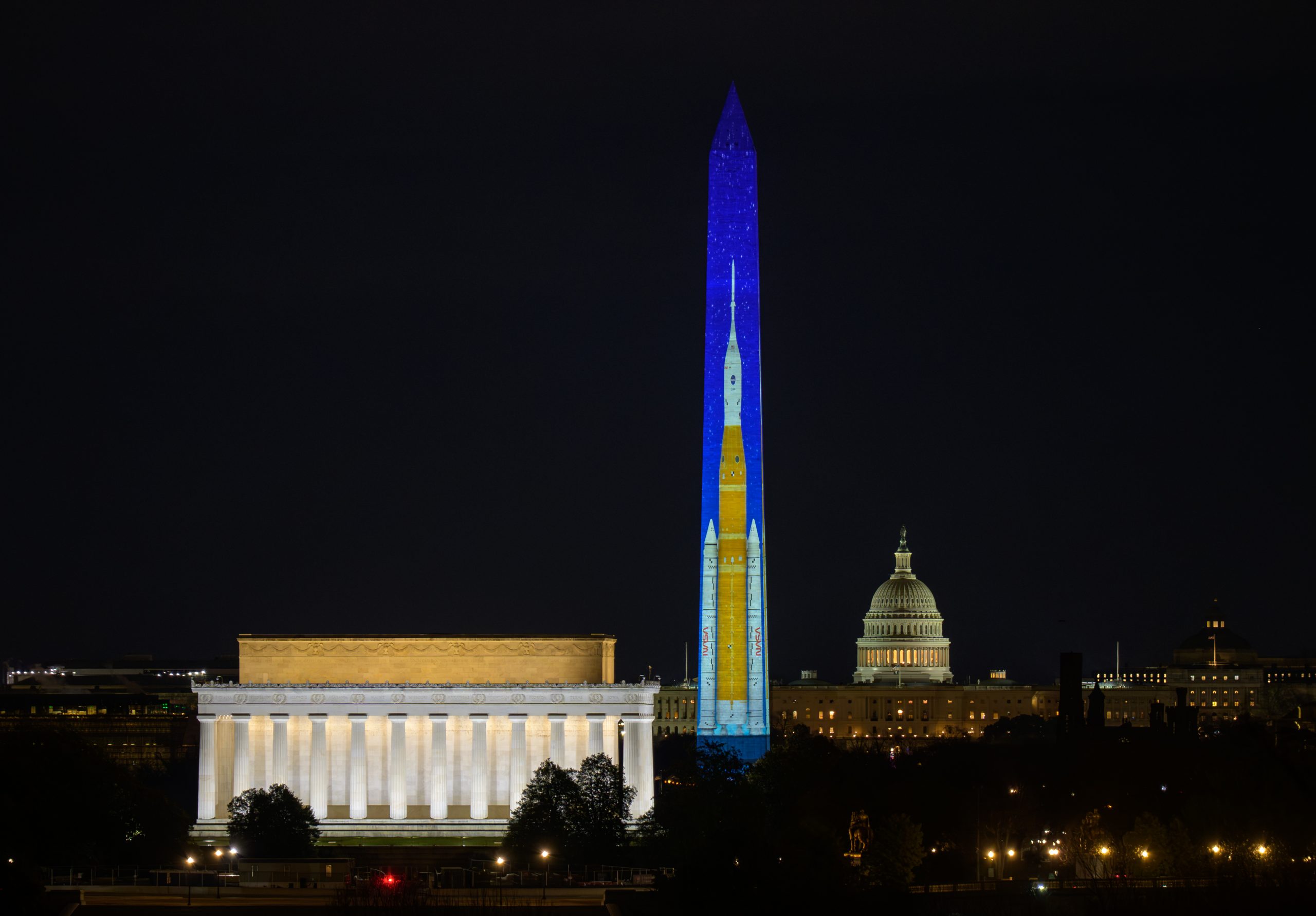
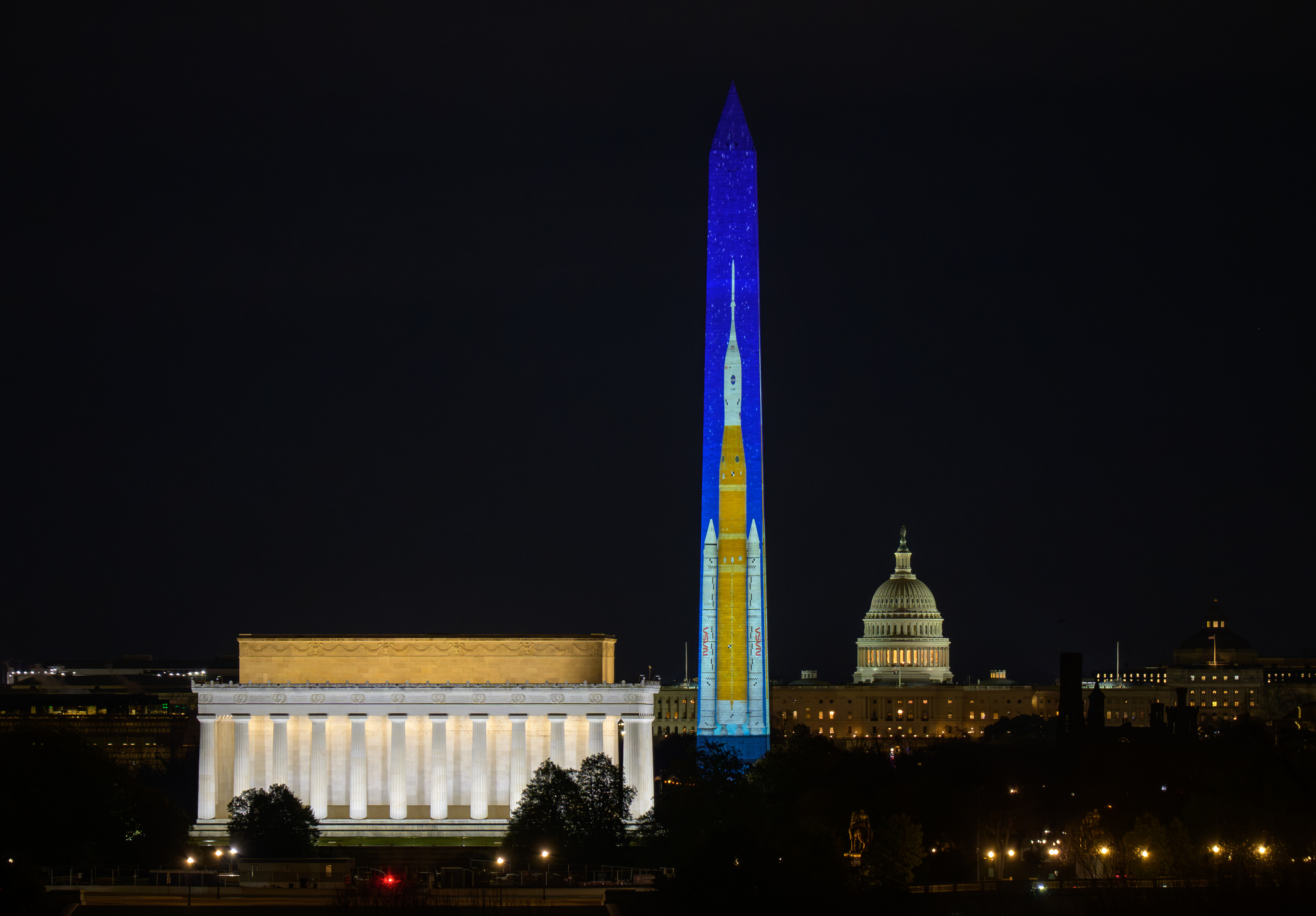
Images depicting NASA’s Space Launch System (SLS) rocket are projected onto the Washington Monument as part of an event to kick off the nation’s 250th birthday year, Wednesday, Dec. 31, 2025, in Washington.
Read More

Artemis II crewmembers (left to right) NASA astronauts Christina Koch, mission specialist; and Victor Glover, pilot; CSA (Canadian Space Agency) astronaut Jeremy Hansen, mission specialist; and NASA astronaut Reid Wiseman, commander are led to the crew access arm as they prepare to board their Orion spacecraft atop NASA’s Space Launch System rocket during the Artemis II countdown demonstration test on Dec. 20, 2025.
Read More![Bishop of Columbus grants Mass dispensation to immigrants who fear deportation #Catholic
Bishop Earl Fernandes of Columbus, Ohio, carries the Blessed Sacrament during a procession at Pickaway Correctional Institution on June 28, 2024, at one of the stops on the Seton Route of the National Eucharistic Pilgrimage. Credit: Catholic Times/Ken Snow
Dec 29, 2025 / 14:18 pm (CNA).
The bishop of the Diocese of Columbus, Ohio, has granted a dispensation from Mass for parishioners who fear deportation by immigration enforcement officers, who have increased activity in the area since mid-December.Bishop Earl Fernandes announced in a letter and video last week that those who fear immigration enforcement action are free from the obligation to attend Sunday Mass until Jan. 11, 2026. The bishop said the dispensation was precipitated by increased immigration enforcement activity in Ohio stemming from Operation Buckeye, a U.S. Immigration and Customs Enforcement (ICE) initiative launched Dec. 16 that is allegedly targeting “the worst of the worst criminal illegal aliens in Columbus and throughout Ohio.”Fernandes told EWTN News on Monday that after he began receiving messages from pastors throughout his diocese informing him that Hispanic parishioners were afraid to attend Mass due to the increased enforcement by ICE officers, he asked diocesan personnel in the Office of Catholic Social Doctrine and the Hispanic ministry office to help him get a clearer picture of “what is happening on the ground.”“They told me there were ICE trucks in front of parishes; even in front of schools,” Fernandes said. “All of a sudden, there were half or fewer attendees at the Posadas [traditional pre-Christmas] celebrations.”He said he decided to issue the dispensation “even though I did not want to” because “people need Mass and the sacraments more than ever” and he wanted families to be together without fear for Christmas.During a Mass he celebrated on Saturday, Dec. 20, Fernandes told EWTN News the pastor of the church remained at the front door and saw an ICE truck nearby. Because of this, the Posada [traditional pre-Christmas] procession was moved from outdoors to a hallway inside the building because “the people were too afraid to go outside.”The procession took place inside the building. “We had a meal, there was a piñata and some celebrations,” Fernandes said. “But it was clear there were a lot of people who weren’t there.”The bishop said he began receiving calls from pastors more than two hours from Columbus who were reporting ICE’s presence.Sharp drops in Mass attendance“The atmosphere of fear was keeping people away,” he said. One pastor reported that only one-third of his congregation attended weekend Mass. Another said only one-quarter were present, Fernandes said.Of the increased enforcement against immigrants, Fernandes reflected: “It’s easy to say immigrants should have come to our country legally. But what if your parents came here illegally and you are a U.S. citizen? … What if one spouse is documented and the other is not. What’s in the best interest of their children and society at large?”Of the Mexican population in Columbus, Fernandes said that “many are the grandchildren of the Cristeros,” resistors to the Mexican government’s attempts in the 1920s to suppress Catholicism in the country.He said a large group of Hispanics came to the midnight Mass on Christmas at the cathedral because they did not think ICE would be there. “I think they felt safe at the cathedral.”Fernandes said the Diocese of Columbus also has large numbers of Catholic African migrants who have “tons of children” and make up “young communities full of life and full of faith.”Fernandes said he talked to the pastor of a multiethnic parish made up of Nigerians, Filipinos, and others, and “they’re afraid too.”He is concerned for the Haitian community as well, whose temporary protected status (TPS) is set to expire on Feb. 3, 2026.He said the Mass dispensation expires on Jan. 11, the end of the Christmas season, at which time he will reevaluate the situation.](https://unitedyam.com/wp-content/uploads/2026/01/bishop-of-columbus-grants-mass-dispensation-to-immigrants-who-fear-deportation-catholic-bishop-earl-fernandes-of-columbus-ohio-carries-the-blessed-sacrament-during-a-procession-at-pickaway-corr-scaled.jpg)

Dec 29, 2025 / 14:18 pm (CNA).
The bishop of the Diocese of Columbus, Ohio, has granted a dispensation from Mass for parishioners who fear deportation by immigration enforcement officers, who have increased activity in the area since mid-December.
Bishop Earl Fernandes announced in a letter and video last week that those who fear immigration enforcement action are free from the obligation to attend Sunday Mass until Jan. 11, 2026. The bishop said the dispensation was precipitated by increased immigration enforcement activity in Ohio stemming from Operation Buckeye, a U.S. Immigration and Customs Enforcement (ICE) initiative launched Dec. 16 that is allegedly targeting “the worst of the worst criminal illegal aliens in Columbus and throughout Ohio.”
Fernandes told EWTN News on Monday that after he began receiving messages from pastors throughout his diocese informing him that Hispanic parishioners were afraid to attend Mass due to the increased enforcement by ICE officers, he asked diocesan personnel in the Office of Catholic Social Doctrine and the Hispanic ministry office to help him get a clearer picture of “what is happening on the ground.”
“They told me there were ICE trucks in front of parishes; even in front of schools,” Fernandes said. “All of a sudden, there were half or fewer attendees at the Posadas [traditional pre-Christmas] celebrations.”
He said he decided to issue the dispensation “even though I did not want to” because “people need Mass and the sacraments more than ever” and he wanted families to be together without fear for Christmas.
During a Mass he celebrated on Saturday, Dec. 20, Fernandes told EWTN News the pastor of the church remained at the front door and saw an ICE truck nearby. Because of this, the Posada [traditional pre-Christmas] procession was moved from outdoors to a hallway inside the building because “the people were too afraid to go outside.”
The procession took place inside the building. “We had a meal, there was a piñata and some celebrations,” Fernandes said. “But it was clear there were a lot of people who weren’t there.”
The bishop said he began receiving calls from pastors more than two hours from Columbus who were reporting ICE’s presence.
“The atmosphere of fear was keeping people away,” he said. One pastor reported that only one-third of his congregation attended weekend Mass. Another said only one-quarter were present, Fernandes said.
Of the increased enforcement against immigrants, Fernandes reflected: “It’s easy to say immigrants should have come to our country legally. But what if your parents came here illegally and you are a U.S. citizen? … What if one spouse is documented and the other is not. What’s in the best interest of their children and society at large?”
Of the Mexican population in Columbus, Fernandes said that “many are the grandchildren of the Cristeros,” resistors to the Mexican government’s attempts in the 1920s to suppress Catholicism in the country.
He said a large group of Hispanics came to the midnight Mass on Christmas at the cathedral because they did not think ICE would be there. “I think they felt safe at the cathedral.”
Fernandes said the Diocese of Columbus also has large numbers of Catholic African migrants who have “tons of children” and make up “young communities full of life and full of faith.”
Fernandes said he talked to the pastor of a multiethnic parish made up of Nigerians, Filipinos, and others, and “they’re afraid too.”
He is concerned for the Haitian community as well, whose temporary protected status (TPS) is set to expire on Feb. 3, 2026.
He said the Mass dispensation expires on Jan. 11, the end of the Christmas season, at which time he will reevaluate the situation.
Read More

An aircraft body modeled after an air taxi with weighted test dummies inside is being prepared for a drop test by researchers at NASA’s Langley Research Center in Hampton, Virginia. The test was completed June 26 at Langley’s Landing and Impact Research Facility. The aircraft was dropped from a tall steel structure, known as a gantry, after being hoisted about 35 feet in the air by cables. NASA researchers are investigating aircraft materials that best absorb impact forces in a crash.
Read More